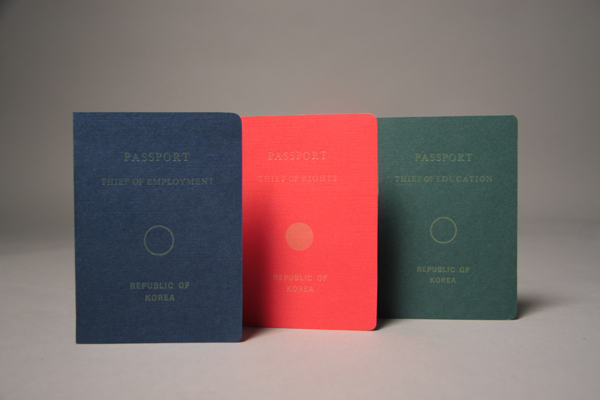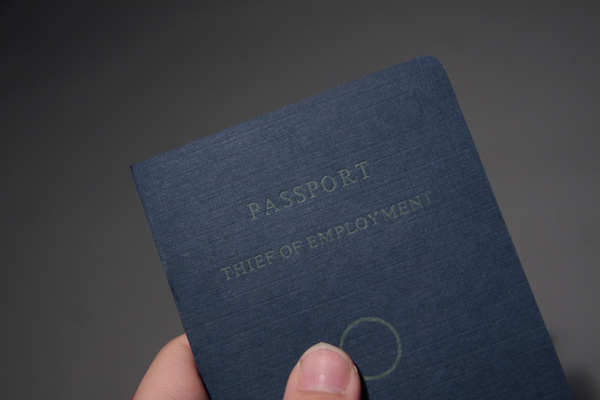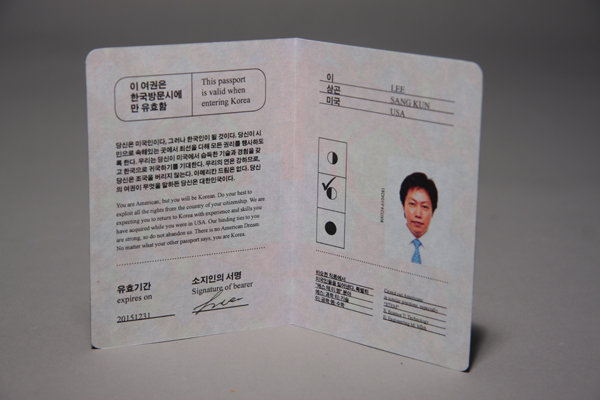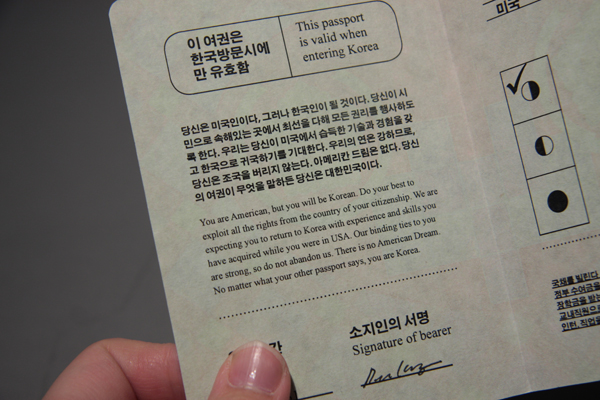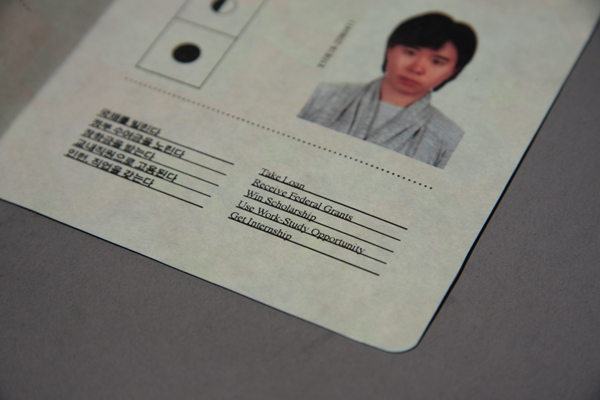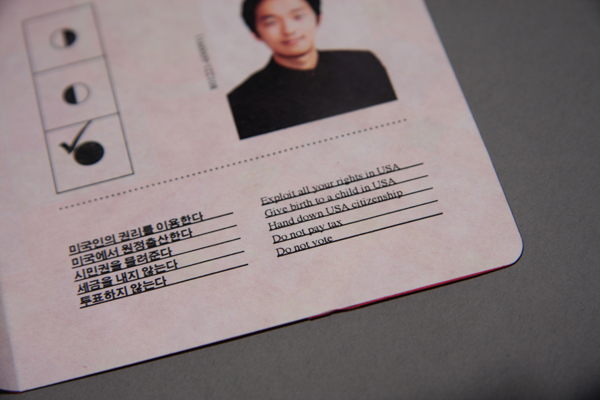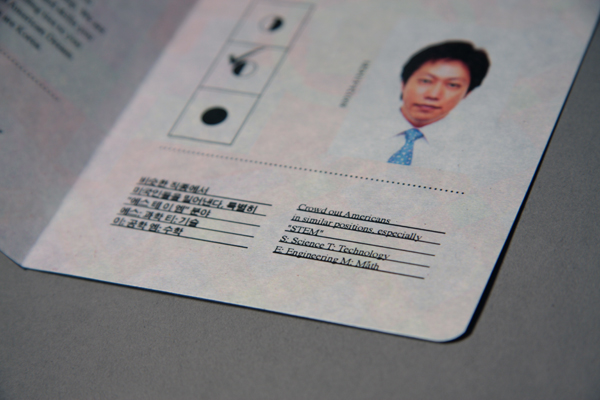Authoring Critical Media, 2010
For my final project, I tried to deal with tensions between two seemingly contrary operations. I wanted to find out the middle point between Korean and American by fabricating the identity of a person who held a dual citizenship and considered himself to be Korean, but chose to be American.
US citizenship in some cases is automatic. Even though the one who holds dual citizenship feels subjected to Korea, she can easily choose to be American for practical reasons. The collision of status happens here and transforms into the vague indeterminacy of 'both' or 'neither.' She plans to live in the States with the privilege of having US citizenship, but doesn't want to be called American. She feels like a foreigner in the US, and at the same time she is legally a foreigner in Korea.
By unfolding the gap between the perceptions and meanings of these two citizenships, I propose a system in which the Korean government issues people who happen to be in this situation passports called 'Thief of Rights,' 'Thief of Education,' and 'Thief of Employment.' These passports respect the holder's choice of becoming a US citizen. They encourage holders to exploit all the rights in the States without paying duty, and bring back their experience from the States to contribute to Korea. The Korean government gives back all the rights in Korea to the holder who serves as 'Thief of Rights,' 'Thief of Education, ' or 'Thief of Employment.' This prevents the outflow of talent and is a form of nationalism. It also plants a feeling of belonging in the holders of the passports.
These days the meaning of citizenship is getting weak. Rights don't require duty anymore in the perception of people. It is common that your citizenship identity contradicts with your true identity. Therefore, there is a fringe area of people who hold an undefined citizenship of their own. Where do you belong? Korea? America? Or nowhere?
